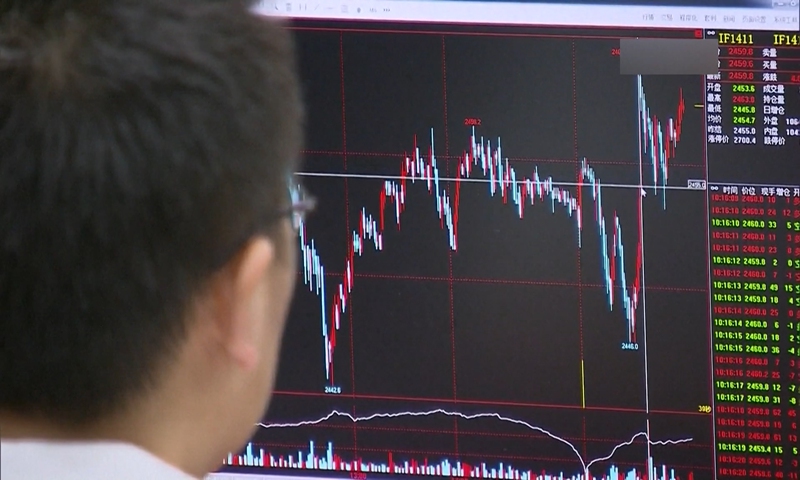
A trader follows the trend of the stock market File photo: VCG
Chinese mainland's A-share markets ended higher on Tuesday, marking an unexpected reversal in the face of a bleak picture on US stock markets on Monday, which has cast a shadow over stock markets around the world.
The Shanghai Composite Index rose by 1.02 percent at closing, while the Shenzhen market was up 0.20 percent. The ChiNext gauge of smaller companies in Shenzhen also increased by 0.07 percent.
Affected by the sharp drop in the external market overnight, Chinese mainland shares opened lower Tuesday morning. After the opening, the decline of major indexes further deepened, with chips, gaming and education shares leading the plunge.
But the A-share market staged a sharp reversal near the end of the session, with brokerage sector becoming the biggest contributor to the index reversal. Auto, oil and gas shares also led the rebound.
Analysts said the relatively independent growth trend shows resilience in the A-share market, and behind the market strength is the increase in investor confidence in the country's economic prospects with the easing of credit conditions and accelerated resumption of work and production
Overnight, Wall Street's S&P 500 tumbled by 3.9 percent to a new low this year in what overseas media described as entering a bear market, the Dow Jones fell more than 875 points, or 2.8 percent, and the Nasdaq slid 4.7 percent.
The tumble was an instant reaction to the news that the surging inflation in the US is yet to peak, which, according to some media reports, could prompt the US Federal Reserve to raise the short-term interest rate by three-quarters of a percentage point on Wednesday.
Experts said that US stock volatility in the face of inflationary pressure may affect A shares both good and bad ways.
"On the one hand, it would make global investors look more closely at mainland assets as a safe haven. However, if US stocks drop too much, it would have a spillover impact on Hong Kong market and A-shares as well," Xi Junyang, a professor from the Shanghai University of Finance and Economics, told the Global Times.
Global Times

